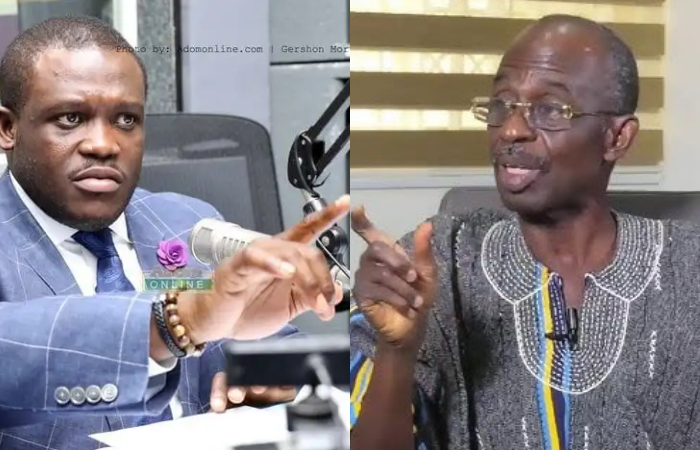The recent Ablekuma North parliamentary rerun was marred by violent disturbances, triggering a wave of reactions from various political figures. Among these reactions, the statement made by Samuel Nartey George, the Communications Minister and Member of Parliament for Ningo-Prampram, sparked controversy and drew sharp criticism, particularly from within his own party, the National Democratic Congress (NDC). George’s comments, published on Facebook, targeted former Vice President Dr. Mahamudu Bawumia, who had condemned the violence that erupted during the rerun. George questioned Bawumia’s sincerity, accusing him of hypocrisy for remaining silent during the similarly violent Ayawaso West Wuogon by-election in 2019, an incident where George himself was a victim of assault.
This public critique of Bawumia by a prominent NDC member ignited internal discord within the party, prompting a swift and strong rebuke from the NDC’s National Chairman, Johnson Asiedu Nketia. Nketia publicly censured George, characterizing his Facebook outburst as emotionally driven and ill-advised. He emphasized that personal grievances, however justified, should never be used to excuse or legitimize present acts of violence. Nketia’s condemnation underscored the NDC’s firm stance against political violence, irrespective of the perpetrator or the perceived provocation. His message was clear: two wrongs do not make a right, and resorting to violence as a response to past injustices only perpetuates a destructive cycle.
Nketia’s response transcended the immediate issue of George’s remarks, addressing the broader problem of escalating political violence in Ghana. He appealed for restraint and responsible conduct, particularly from political leaders whose words carry significant weight and can influence public behavior. He stressed the importance of maintaining peace and upholding the rule of law, arguing that resorting to violence undermines the very fabric of democracy. Nketia’s call for accountability and fairness extended beyond the realm of politics, encompassing the crucial role of state institutions, especially law enforcement agencies and the judiciary.
Nketia argued that restoring public trust in these institutions is paramount to preventing further outbreaks of violence and the dangerous trend of individuals taking the law into their own hands. He emphasized that a fair and impartial justice system is the cornerstone of a stable and peaceful society, ensuring that all individuals are held accountable for their actions, regardless of their political affiliation or social standing. This, he believed, would deter future acts of violence and foster a climate of respect for the rule of law.
The public disagreement between Nketia and George exposed the complex dynamics within the NDC and the challenges of maintaining party unity in the face of divisive issues. Nketia’s public reprimand of George, a prominent figure within the party, demonstrated his commitment to upholding the NDC’s principles and maintaining a consistent message against political violence. This action also served as a clear signal to other party members and the broader public that the NDC would not tolerate any attempts to justify or condone violence, regardless of the circumstances.
This incident highlights the broader issue of political violence in Ghana and the urgent need for a collective effort to address its root causes. Beyond condemning individual acts of violence, Nketia’s response emphasized the importance of systemic reforms and the crucial role of state institutions in ensuring justice and accountability. His call for greater fairness and impartiality within law enforcement and the judiciary serves as a reminder that lasting peace and stability require a functioning and trustworthy justice system that serves all citizens equally. This reinforces the crucial message that violence is never the answer, and a commitment to peaceful and democratic processes is essential for the progress and prosperity of Ghana.


